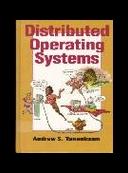Книга: Distributed operating systems
1.2.3. Disadvantages of Distributed Systems
1.2.3. Disadvantages of Distributed Systems
Although distributed systems have their strengths, they also have their weaknesses. In this section, we will point out a few of them. We have already hinted at the worst problem: software. With the current state-of-the-art, we do not have much experience in designing, implementing, and using distributed software. What kinds of operating systems, programming languages, and applications are appropriate for these systems? How much should the users know about the distribution? How much should the system do and how much should the users do? The experts differ (not that this is unusual with experts, but when it comes to distributed systems, they are barely on speaking terms). As more research is done, this problem will diminish, but for the moment it should not be underestimated.
A second potential problem is due to the communication network. It can lose messages, which requires special software to be able to recover, and it can become overloaded. When the network saturates, it must either be replaced or a second one must be added. In both cases, some portion of one or more buildings may have to be rewired at great expense, or network interface boards may have to be replaced (e.g., by fiber optics). Once the system comes to depend on the network, its loss or saturation can negate most of the advantages the distributed system was built to achieve.
Finally, the easy sharing of data, which we described above as an advantage, may turn out to be a two-edged sword. If people can conveniently access data all over the system, they may equally be able to conveniently access data that they have no business looking at. In other words, security is often a problem. For data that must be kept secret at all costs, it is often preferable to have a dedicated, isolated personal computer that has no network connections to any other machines, and is kept in a locked room with a secure safe in which all the floppy disks are stored. The disadvantages of distributed systems are summarized in Fig. 1-3.
Despite these potential problems, many people feel that the advantages outweigh the disadvantages, and it is expected that distributed systems will become increasingly important in the coming years. In fact, it is likely that within a few years, most organizations will connect most of their computers into large distributed systems to provide better, cheaper, and more convenient service for the users. An isolated computer in a medium-sized or large business or other organization will probably not even exist in ten years.
| Item | Description |
|---|---|
| Software | Little software exists at present for distributed systems |
| Networking | The network can saturate or cause other problems |
| Security | Easy access also applies to secret data |
Fig. 1-3. Disadvantages of distributed systems.
- Advantages of Generics
- Distributed Denial of Service
- 14.5.1. Open Systems Interconnection
- 5.3. TRENDS IN DISTRIBUTED FILE SYSTEMS
- 1. Basic microprocessor systems
- Setting Up Guest Operating Systems
- Network and Disk File Systems
- Viewing Your System's File Systems
- Verifying File Integrity in ext3 File Systems with the fsck Utility
- Other File Systems Available to Fedora
- JFS and XFS File Systems
- DOS File Systems




